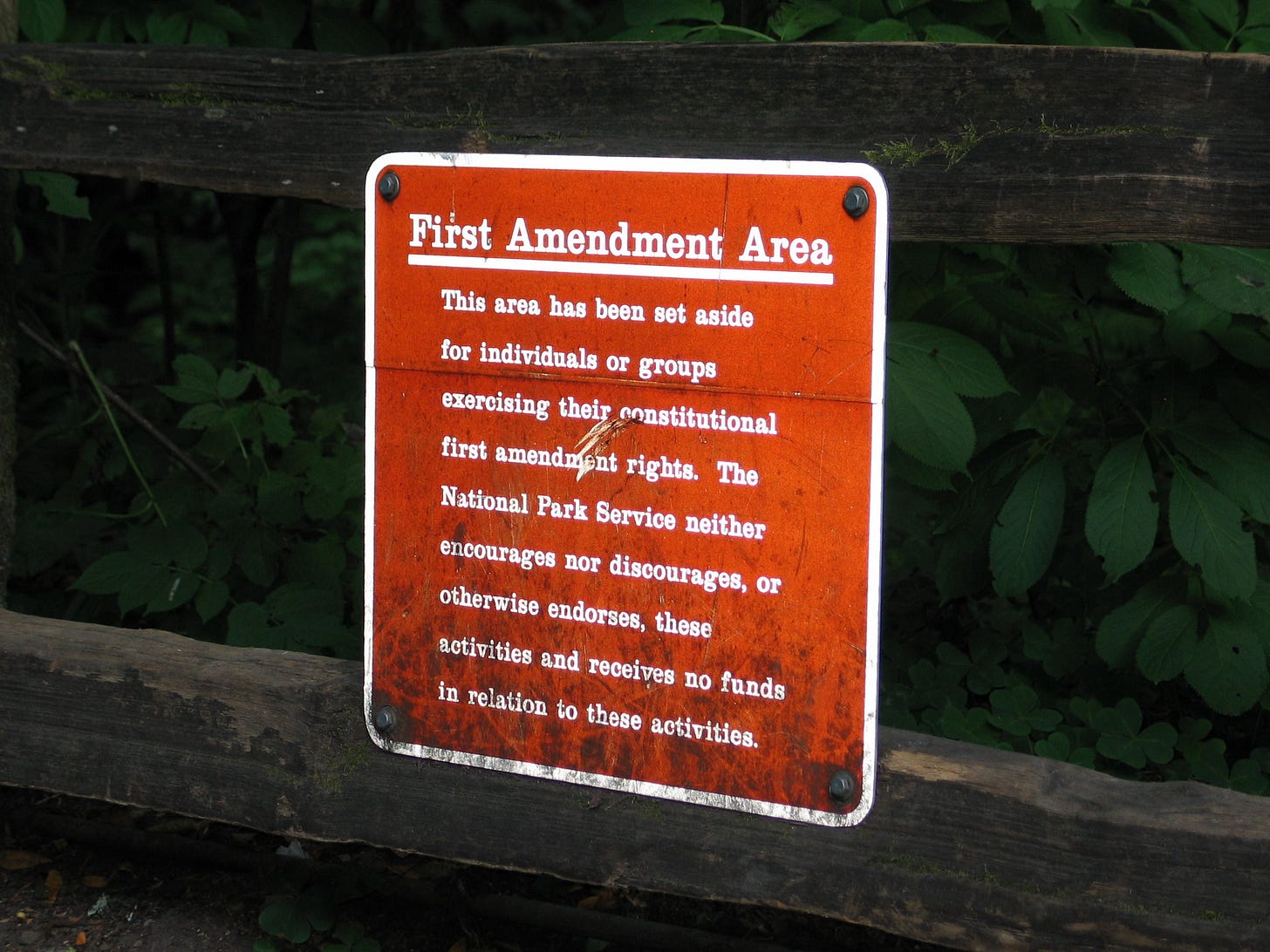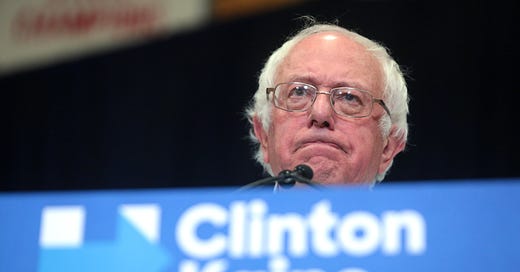Should Democrats Be a Little More Like Elon?
The best lack all conviction, while the worst are full of passionate intensity

As soon as he took over as president, Donald Trump signed an executive order that changed the name of an obscure government organ called the United States Digital Service to the Department of Governmental Efficiency, headed by Elon Musk. Republicans always try to cut the size and scope of government whenever they take power, but DOGE has been remarkable for its speed and volatility.
Its new employees — many of whom had worked previously for Musk’s companies — quickly embedded themselves into other parts of the executive branch. They got access to the system that controls government payments then at least attempted to use that access to halt the flow of money to USAID, the agency that handles foreign aid. The Office of Personal Management (another largely unknown corner of government taken over by Muskites) sent out a mass email informing all federal employees that if they resigned now they would get paid until September. DOGE is now live-xeeting a list of contracts it is cancelling, the leases it is selling off, and the government websites it is taking down. Musk, the richest person in human history and now apparently one of the most powerful people in the U.S. government, has bragged to friends that he’s sleeping at the DOGE office. Some of his workers are apparently doing the same, even bringing “sleep pods” into the buildings where they work.
The DOGE-ification of the federal government is questionably legal, possibly fascistic, and above all an expression of the hubristic Silicon Valley slogan “you can just do things.” It has provoked, naturally, protests and lawsuits from Democrats, along with a lot of posts on Bluesky. But I wonder if it should also provoke a twinge of jealousy for everyone on the left: They can do things, why can’t we?
The book is still being written on the Biden administration, but I imagine that as time goes on the adjective that will be used most will be indecisive. According to one New York Times article from early in Joe Biden’s presidency, he “takes days or weeks to make up his mind as he examines and second-guesses himself and others.” On the domestic policy front, this quality manifested as “a refusal to prioritize, a paralyzing fear of pissing off any Democratic faction that too often wound up winning nothing for any of them,” as Vox’s Dylan Matthews recently wrote. Instead of picking a particular issue to focus on, the major legislation Democrats passed during this era was a smorgasbord of piecemeal policy wins for different constituencies.
Under Biden, the Democrats established the Child Tax Credit, a major progressive policy goal that provided money to parents and other caregivers — but only for a year before it expired. Biden’s 2021 Covid relief bill allocated $42 billion to provide broadband internet access to rural communities — but attached such onerous requirements to the funding that Biden left office before anyone got broadband. That same bill provided $7.5 billion to build chargers for electric cars — but only 214 had been built three years later.
Biden moved slowly to deal with crises at the southern U.S. border and in Gaza, but maybe the most damning case of his lethargy is his treatment of “the former guy.” After Trump whipped up hundreds of his most deluded fans into storming the Capitol on January 6, 2021, it took the Biden administration nearly two years to appoint a special prosecutor to look into it. And remember, Biden’s whole stated reason for running for president was that Trump’s refusal to denounce white supremacists supposedly convinced Biden that “the threat to this nation was unlike any I had ever seen in my lifetime.” I guess the threat wasn’t that serious? Or maybe Biden thought he’d licked the threat after winning in 2020? Either way, whoops.
But the problem isn’t limited to just Biden. Many parts of the Democratic coalition seem unable or unwilling to focus on their self-proclaimed policy goals. The Sunrise Movement is so concerned about the climate crisis that it interrupts Democratic National Committee meetings — but not concerned enough to back reforms that would make it easier to build clean energy infrastructure, and not so concerned that it won’t occasionally oppose solar panel construction. The Democrats who run West Coast cities (all facing varying levels of housing affordability and homelessness crises) will occasionally admit they need to build more housing — but not until they have several years of meetings, then more meetings. Then there’s the rallying cry of California Democrats:
What do we want?
High speed rail connecting LA and San Francisco!
When do we want it?
Never!
When it comes to building housing and other infrastructure, Democrats are sometimes hamstrung by self-imposed rules aimed at supporting small businesses and unions or advancing racial equity. New York Times columnist Ezra Klein dubbed this “everything bagel liberalism”— the idea that every piece of progressive policy must support a thousand different priorities at once1. In other cases, Democrats may appear indecisive because they’re confronting hard problems, like tens of thousands of migrants showing up at the border. Sometimes, Democrats don’t move aggressively on an issue because the obvious solution is some combination of illegal, logistically impossible, or wildly unpopular — there’s a reason that even gun control advocates don’t talk about the mass seizure of guns, even though that would really reduce gun violence.
But strategic caution, consensus-building, and a fetish for following proper procedure provide Democrats with a million excuses not to get anything done, or at the very least to slow themselves down. That’s how you spend money building rural broadband while also not building rural broadband.
Moving quickly carries political risk, of course. It invites backlash2 and court challenges; it will invariably make people upset and create news coverage around the thing you are trying to do, not all of it positive. This is one of the cornerstones of Trumpism: Trump does something rash or illegal and it generates drama, with heroes and villains and stakes. A policy battle, in the Trump era, is an entertainment product. Trump is always fighting, and if you support him you assume he’s fighting for you.
Who was Biden fighting? To what end? What was the story of the Biden presidency? In the 2020 campaign, Biden could at least say he was fighting to restore a sense of normalcy to a country badly fractured by a pandemic and Trump’s first chaotic presidency. But then he won, and the “normalcy” he restored was an uninspiring, sluggish morass. He failed to keep people engaged, and they stopped caring about what he was doing. No wonder voters didn’t give him any credit.
No one knows which Democrats will emerge as leaders and presidential contenders in the post-Trump era. My hunch, though, is that they will all be better storytellers than Biden (or Harris) was. One easy way to tell a story is to start with a problem, cast yourself as the hero who can fix it, and then try to solve it, loudly and vigorously.
This doesn’t have anything to do with national politics, but Keith Wilson, the new mayor of Portland, Oregon, fits this bill. He’s a political outsider who won a decisive victory by centering his campaign around a single promise: He wants to end unsheltered homelessness in the city by the end of the year. Is that realistic? I have no idea. But I’ll be rooting for him. It’s refreshing to find a politician who is willing to treat a crisis like a crisis.
One hilarious example of this was the extraordinarily narrow student loan forgiveness plan cooked up by Kamala Harris’s 2020 presidential campaign: It would give $20,000 in forgiveness only to Pell Grant recipients who founded small businesses in “disadvantaged communities” and kept them running for three years.
DOGE will certainly generate a lot of backlash if it succeeds in cutting government so drastically that services suffer.







